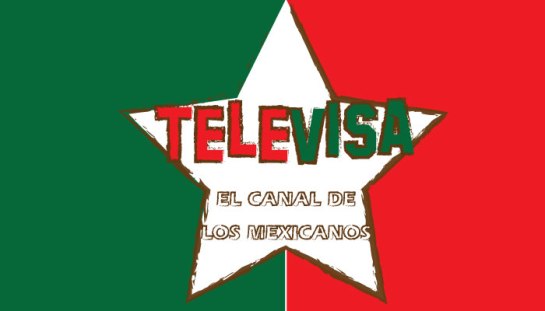Over the past year I have had countless conversations about politics with many people, and the only time I ever get into trouble is when I begin talking about Venezuela’s late former President, Hugo Chavez. When I express a dislike for his policies, I am inevitably asked if I am “conservative.” NO! I just believe in sound macro policies! The (usually left-leaning) person I am talking to looks at me mistrustfully and the conversation either awkwardly ends or is steered into US-bashing territory by said individual. Yes, I know that the US is responsible for 99.9% of everything bad that has ever happened (except for Nickelback), but Venezuela’s current woes cannot be cast as such. (Though President Nicolas Maduro is doing just that–he recently expelled three US diplomats for plotting to sabotage the economy.) I want to make the case that leftist policies can certainly work well as long as they are implemented prudently and intelligently, as in the case of Brazil’s president from 2003-2011, Luiz Inacio Lula da Silva (Lula).
Venezuela has had a turbulent past three decades, as have most Latin American countries, which makes it difficult to gauge the impact that Chavismo has had on Venezuela. Also complicating matters is the country’s reluctance to divulge economic data. However, it is generally agreed that Venezuela’s GDP growth looked something like this under Chavez:

And this is how Brazil’s looked under Lula:

For my purposes, the most salient features of these two growth trajectories are:
a) Venezuela’s steady downward arc after bouncing back from the oil strikes of 2002-2003.
b) The fact that Venezuela, a nation with the largest oil deposits in the world, was unable to maintain steady growth or stability for any meaningful period of time (estimates place average growth between 2004 and 2011 at just 3%).
c) Venezuela’s isolation from the West relative to Brazil is demonstrated by a small downturn in 2007-08 GDP, while Brazil took a nosedive during this period.
d) But still, Venezuela’s persistently diminishing growth since 2007 is mostly a product of reduced demand for oil throughout the developed world.
e) Under Lula, Brazil’s economy took off and rarely dipped below 3% growth, exempting the recession.

Agence France-Presse — Getty Images
Of course, a leader’s legacy is not judged solely on GDP growth, but I think the above charts show some fundamental truths about the two leaders’ governing styles. Though Lula spooked markets during his campaign with comments about reevaluation and possible default on Brazil’s sovereign debt, once in office, he was pleasantly pro-business. His trademark combination of public and private sector enterprises worked well, and foreign direct investment tripled on his watch to $30 billion a year by 2011. He also collaborated with the IMF and was able to pay back loans two years ahead of schedule. Imagine that–a leftist who can balance the books!
He also lifted 20 million Brazilians out of poverty and made it his personal goal to bring them better education and health care. Lula began the long process of tax reform, which is now stalled under his successor Dilma Rousseff, and appointed competent economists to run the central bank and treasury. Inflation was 15% when he took power, but hovered around 5% for most of his presidency. Best of all, he implemented various innovative initiatives. Fome Zero’s goal was to reduce hunger, and while it had a government budget, it also accepted funds from private donors and international organizations. His Growth Acceleration Program was a pledge to invest in Brazil’s infrastructure over the course of four years. Keynes would have been proud.
Lula played nice with the US and Latin American countries, and, despite some mighty odd pronouncements, he attracted business to Brazil because he didn’t terrify people. Sure, he blamed blue-eyed, blonde haired people for the recession, but I, for one, admit my part in it. Oh why did I underwrite all those CDOs while I was working for Goldman Sachs? The point is that Lula understood the role of international engagement and the private sector in the fate of his country’s economy, and was able to move to the center politically when he realized that the state acting as a belligerent island cannot sustain an economy in today’s world. He understood that cooperation with these actors was the only way to accomplish his central goal of giving Brazilians the means to live a comfortable life. Did Chavez understand this? Not a chance.

Juan Barreto/AFP/Getty Images
Chavez might be remembered best for his loud denigrations of everyone from George W. Bush (whom he called “the devil” and “Hitler-Bush”) to Spanish monarch Juan Carlos I, who famously told Chavez to shut up at a leaders’ summit. While this foreign policy technique certainly garnered attention, it severely crippled Venezuela’s relationship with pretty much every country except Bolivia, Cuba, Russia, and Iran. And so while Brazil’s FDI and current accounts balance flourished, Venezuela found itself increasingly limited to a small number of trading partners–though it should be noted that, despite Chavez’s fiery invectives, the US was the most important of these!!
I have no doubt that Chavez had the best of intentions, and I don’t deny that he helped a lot of people. The poverty rate in Venezuela was 70.8% in 1996, and by 2010 it had fallen to 21%. He conceived of projects such as Ciudad Caribia, a city created for the country’s Carib population in which homes have been given to 1600 families so far. I do not take issue with what he was trying to do, but rather his methods.
Chavez implemented a number of economic policies that did more harm than good, especially for the poverty-stricken people he most wanted to help. The fact is that revenues from state-owned oil behemoth Petroleos de Venezuela S.A. (PDVSA) go directly to the government, which then uses the cash for whatever suits its fancy. This often includes public works projects, social spending, and aid to poor countries like Haiti and Cuba. My intention is not to debate private vs public (I have no problem with state-owned enterprises, as long as productivity can be maintained), but PDVSA is not state-owned so much as it is Chavista-controlled in a distinctly undemocratic fashion. This is important because the degree to which Venezuela is dependent on oil exports is shocking. In a 2009 report on the Venezuelan economy by the Council of Foreign Relations (CFR), it is reported that “oil generates about 80 percent of the country’s total export revenue, contributes about half of the central government’s income, and is responsible for about one-third of the country’s GDP.” This number has been estimated at 95% in recent years. In other words, yowza!
So the government’s ownership of PDVSA puts it in control of most of the capital flowing into Venezuela. The government in turn dispenses the wealth to the people. Chavismo is essentially the process of the government’s increasingly restrictive economic policies that make citizens even more dependent on the Chavista government. And, as the CFR points out, “analysts draw links between PDVSA’s profitability and the political stability of the country.” Eek. The CFR also reports that policy analyst Peter Hakim has observed that “Chavez’s gradual takeover of PDVSA has given him an enormous bankroll to pursue his political and economic ambitions.” Many have suggested that PDVSA is poorly managed and that more revenue should be reinvested in infrastructure to assure its long-term productivity. While social spending is admirable, money spent on infrastructure would assure the availability of revenue for social spending well into the future.
Apart from Venezuela’s worrisome dependence on oil and the Chavista hold on PDVSA, the two most irksome policies implemented by Chavez are price caps and exchange rate controls. Price caps were introduced as a way to tame the country’s rampant inflation, which is partly a result of reliance on oil. Inflation has long been a problem of Latin America, but in recent years other countries have managed to tame the beast, whereas Venezuela has resoundingly failed, even compared to economic basket-case Argentina:

(There is also speculation that Venezuela’s inflation rate may be creeping back up to 100% amid ongoing instability caused by the April elections.)
But instead of treating the cause of the problem, Chavismo elected to treat the symptom, which resulted in perpetual shortages of bread, milk, and other essential items as carrying these products was no longer profitable for grocers. Admittedly, inflation and shortages were a problem long before Chavez took power, but he presided over an increase of the price of oil that reaped surprisingly few improvements in the country’s financial situation. Compared to United Arab Emirates or Norway, also big oil exporters, Venezuela has little tangible evidence of an oil boom–except inflation, that is.

Masdar City, Abu Dhabi
image: BBC
Currency controls are also a massive problem. Put into place to lessen capital flight in the face of inflation, they have further distorted the value of the bolivar. The official exchange rate is 6.3 bolivars for one dollar, but on the black market the rate is six times that. To bolster the export sector, the bolivar was devalued by 33% in February, which incurred even more inflation and resulted in even more expensive imports. So the export sector, from which the government gets virtually all of the profits, is prioritized over the interests of citizens that need a stable currency and consumer products, which in turn makes them even more dependent on state handouts. This is fine if the state continues to hand stuff out, but, by most accounts, social spending is unsustainable.
I could list more dismal economic statistics, such as the 9% deficit Venezuela clocked in 2012, but I think I’ve made my point. It has been said that Chavez improvised his way through much of his presidency, and I think that’s fairly obvious. Despite his good intentions, he was not a prudent caretaker of the economy.
It is always hard to gauge how much of a country’s trajectory is a result of leaders’ policies, and it’s a little unfair to judge Brazil, with its diverse export sector, against Venezuela’s petroleum-heavy exports. However, It could be said that Lula did more with less and that Chavez did both less and more with plenty. Though the legacies of these two leaders will continue to be hotly debated for years to come, from my perspective one gave the people the means to sustain themselves while the other made them more dependent on an ever-increasingly precarious state.
Both Lula and Chavez’s successors are in extremely difficult situations that can to varying degrees be attributed to their predecessors. Venezuelan President Nicolas Maduro must find a way to scrap some of the more insidious policies of Chavismo while keeping the Chavistas appeased, while Brazilian President Dilma Rousseff must find a way to push through tax reforms, work on infrastructure, and improve Brazil’s business climate.
I hope I have made my case for responsible leftist policies rather than reckless ones, and I hope it is now clear to all that I am not a yanqui-loving, satanic, conservative!






































